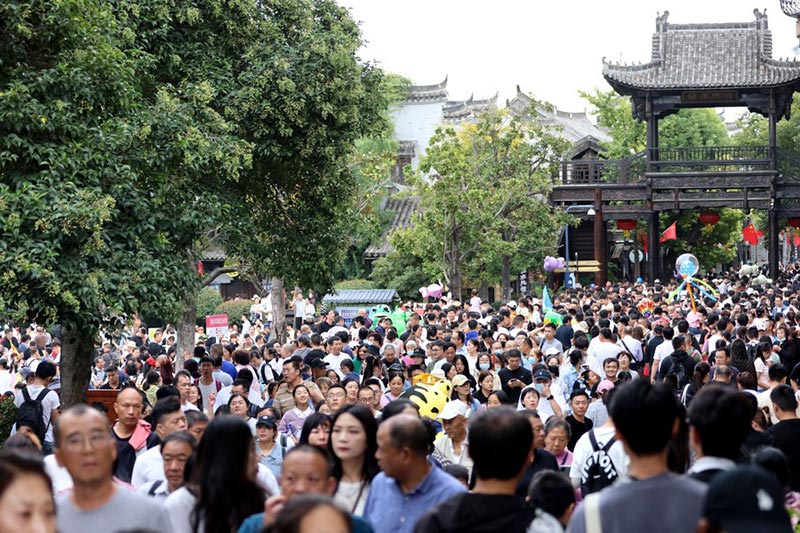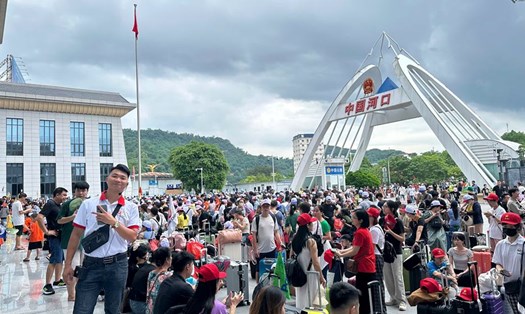With the economy slowing and consumer confidence hovering just above historic lows, experts predict many travelers during China's week-long National Day holiday will opt for domestic destinations, or cheaper overseas destinations and take advantage of airfare promotions, according to Reuters.
This traditional holiday is expected to see a surge in Chinese travel, especially overseas trips, due to the long break. This year, the Chinese government predicts that the average number of daily trips will increase by just 0.7 percent compared to the same period last year.
“It would be a good result if tourism spending stays the same as last year,” said Liu Simin, an official with the tourism branch of the Beijing-based China Future Society Research Institute. “People are more willing to travel when the economy is growing, but when the economy is not growing, tourism will stagnate.”
Wang Xin, an office worker in Beijing, said she would drive with her family to Yangzhou, an ancient city near Shanghai famous for its lakes, beautiful gardens and famous fried rice specialty.
“There are no tolls during the holidays, so we will drive instead of taking the train,” said the 45-year-old. “It’s better to cut down on unnecessary spending when the economy is like this. A lot of people are losing their jobs and at my age – if that happened to me, I wouldn’t be able to find another job.”
Before the pandemic, her family's Golden Week destinations included Singapore and the United States.

Data from travel platform Flight Master shows that domestic airfares in China are expected to be 21% cheaper year-on-year, while international economy fares will be 25% lower in 2023 and 7% lower than in 2019. The platform predicts that Chinese travelers’ favorite international destinations for the upcoming holiday will continue to be Asian travel hubs such as Japan, South Korea, Thailand and Singapore – all within a short distance.
Trip.com, China's largest online travel platform, has seen a significant shift as Chinese travelers choose long-haul destinations like Australia, New Zealand, the UK and France this year and book longer stays.
“Travelers are likely to take advantage of lower fares to travel further, stay longer and upgrade to higher-star hotels,” HSBC analysts said in a report.
While last week's massive consumer stimulus package may have some impact on Chinese tourist spending, experts predict that purchasing power is unlikely to exceed the same period in 2023 for this holiday.
Several foreign airlines such as British Airways and Qantas Airways have cut or suspended flights to China this year due to lack of demand, as well as fierce price competition from local airlines.
AirAsia Philippines announced this month that it would stop flights between Manila and China in the fourth quarter. Its CEO told local media that China’s share of passenger traffic in 2019 had dropped from 30% to just 2% this year.
There are exceptions, however. Korean Air Lines said regional travel demand is improving and this month announced the launch or restart of some routes to and from China.
Last year, China's railway industry alone handled about 20.1 million passenger trips, setting a new record for the number of daily trips and surpassing the 20 million mark for the first time in history during the country's seven-day National Day holiday.





